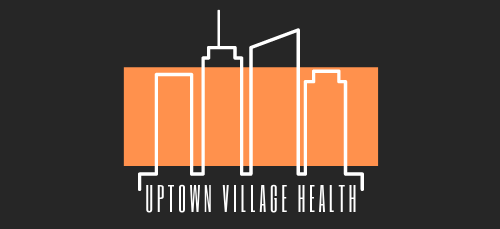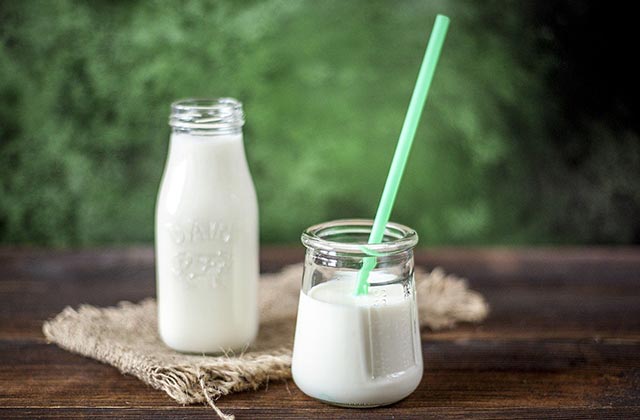Calcium is important for our overall health. Almost every cell in our body uses calcium in some ways. One has calcium in their body more than any other mineral. Calcium makes up our teeth and bones. Moreover, it also plays a role in our nervous system, muscles, heart, and lungs. The right level of calcium in the body over a lifetime can help prevent osteoporosis. Studies show that calcium can also help you lose weight.
It is recommended that an adult intake 1,000 mg per day of calcium, and women over 50 and everyone over 70 should get 1,200 mg per day, while children aged 4–18 are advised to intake 1,300 mg. However, not everyone could meet their calcium needs through their diet.
Commonly we know that milk and other dairy products are a good source of calcium yet there are a vast amount of non-dairy products that could be a source of calcium. Listed below are all the different foods you can work into your diet to reach your daily recommended amount of calcium.
- Milk
Milk is said to be the cheapest and best source of calcium. Nutritionists suggest that people have milk and other dairy products, such as yogurt and cheese, every day as part of a balanced diet.
Besides calcium, milk and milk products have a good balance of protein, fat and carbohydrate, Vitamin A and Vitamin D.
Research has shown that if milk and milk products are removed from the diet, it can lead to an inadequate intake of calcium. It leads to calcium deficiency that could lead to conditions like osteoporosis.
- Cheese
Cheese is also an excellent source of calcium. Out of all the types of cheese, parmesan cheese has the most calcium. This type of cheese contains 331 mg or 33% of the recommended daily intake per ounce (28 grams) of calcium. The softer types of cheese tend to have less calcium than the other types.
Additionally, the body absorbs calcium from dairy products more easily than from plant sources.
Cheese is not only rich in calcium but is also packed with protein. It also has phosphorus that is also good for the bones.
- Yogurt
Yogurt, just like any other dairy product, is also a great source of calcium. A cup of regular yogurt contains 30% of the recommended daily intake of calcium. While a low-fat yogurt has 45% of the recommended daily intake for calcium. While Greek yogurt delivers less calcium than regular yogurt.
Yogurt is also rich in probiotic bacteria, which have various health benefits. A study even linked eating yogurt to better overall diet quality and improved metabolic health.
- Seeds
Seeds even though they are small contain a great number of nutrients. They are tiny powerhouses. Some of them are excellent sources of calcium such as poppy, chia, sesame, and celery seeds.
One tablespoon of sesame seeds has 9% of the recommended daily intake of calcium. While one tablespoon of poppy seeds contains 13% of the recommended daily intake of calcium.
Seeds are also rich in protein and healthy fats.
- Canned Salmon and Sardines
Due to their edible bones, canned salmon and sardines are loaded with calcium. Sardines provide about a third of the amount of calcium needed by an average person in each serving.
These fishes also provide a high amount of protein and omega 3 fatty acids. Sardines are also rich in Vitamin D.
- Beans
Beans are also one of the non-dairy foods that are packed with calcium. One cup of cooked winged beans has 244 mg, 24% of the recommended daily intake of calcium. One cup of white beans has 13% of the RDI for calcium while other varieties of beans have 4-6% RDI of calcium.
Beans are also packed with iron, zinc, magnesium, folate, and potassium. Beans may also help lower cholesterol levels.
- Dark Leafy Greens
Dark leafy greens like spinach, kale, turnips, and collard greens are incredibly healthy and high in calcium.
Collard greens have a quarter amount of calcium you need in a day. However take note that some greens have oxalates, compounds that bind to calcium, which makes some of them unavailable to your body. An example would be spinach, that’s why it has less calcium than kale and collard greens.
These greens are also full of other minerals such as vitamin A, C, K, and antioxidants.
- Fortified Foods
Another way to intake calcium is through fortified food such as cereals.
Cereals, even before adding milk, can deliver up to 1000 mg or 100% of the recommended daily intake of calcium.
Cornmeal and flour may also be fortified with calcium this is why bread, crackers, and tortillas contain high amounts of calcium.
- Tofu
Tofu that is prepared with calcium has 86% of the recommended daily intake of calcium in just half a cup.
- Fortified Drinks
People who don’t drink milk or those who are lactose intolerant can still get calcium from fortified, non-dairy beverages.
One cup of fortified soymilk offers 30% of the recommended daily intake. Some kinds of nut or seed-based milk may be fortified with even more calcium. Even orange juice can have it if it is fortified.
Calcium is an important mineral you may not be getting enough of. You can meet your calcium needs by consuming the things that are on the list. If you want to talk to a medical professional, you can find a walk-in clinic Thunder Bay.
Remember that your body cannot completely take in all the calcium at once that is why it is recommended to spread your intake throughout the day. Additionally, too much calcium is not good for your body.

